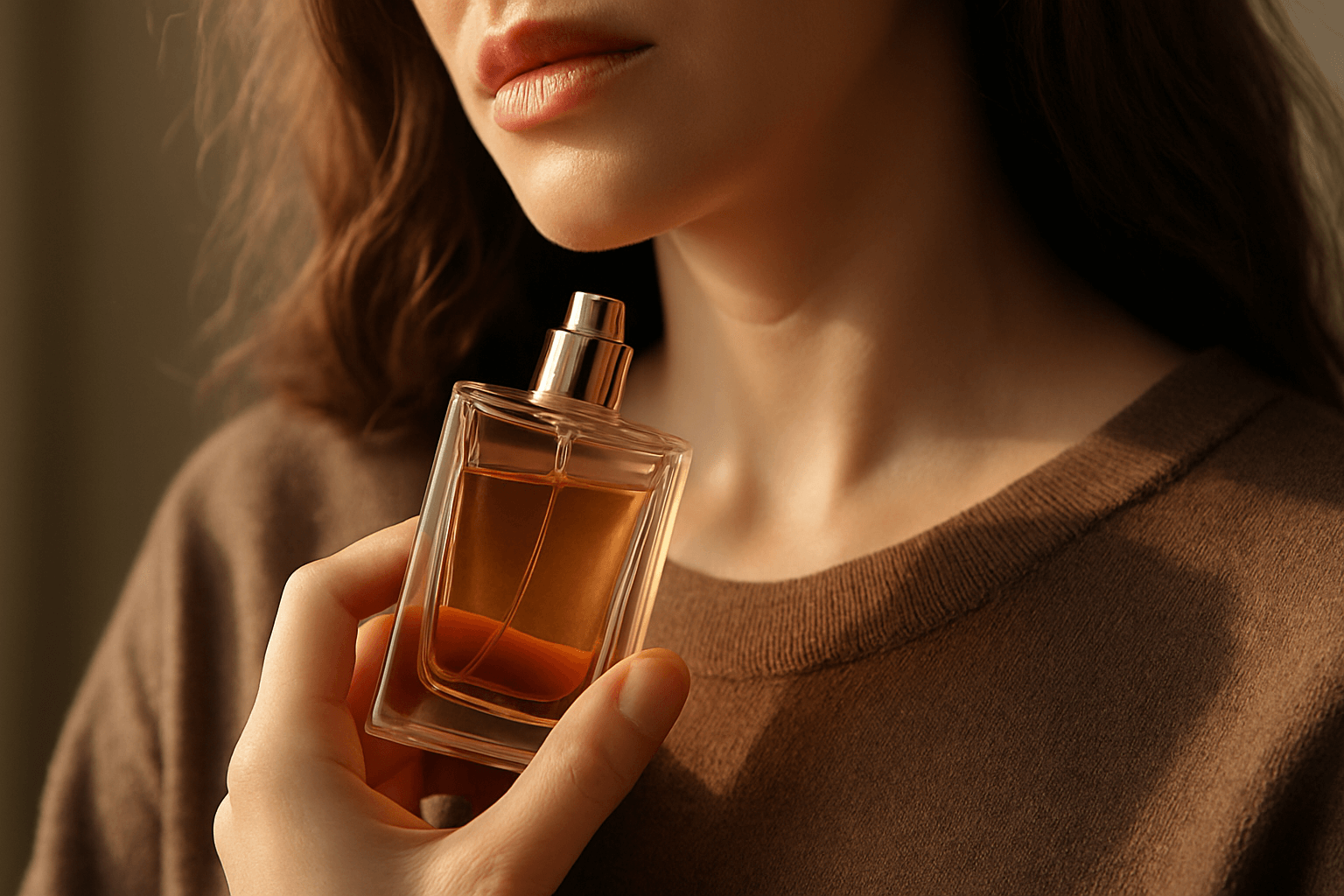Perfume is no longer just a pleasant scent. It’s become a language — a way to express your current state, desires, fears, and dreams. Where once people chose a bottle based on trends or advice, now many instinctively search for “their” scent — one that resonates internally. This is often called emotional fragrance selection, where scent becomes a mirror of feelings and the character of a moment.
How emotional choice works: From subconscious to Bottle
Many people unconsciously gravitate toward certain scents depending on their mood. This isn’t random — it’s a reaction of the brain and memory to olfactory stimuli tied to personal experiences. For example, someone may prefer warm, oriental notes during anxious times — they bring a sense of safety. Others reach for aquatic accords when craving freedom and lightness.
Perfumers have long studied how scents affect emotional states. Citrus energizes, vanilla soothes, woody notes ground us. Emotional fragrance choice often happens before logic kicks in: the hand reaches for the bottle before the mind understands why. It’s raw perception chemistry and deeply personal history.
Scents that create an inner response tend to stay with us. They become part of a ritual — a kind of emotional anchor. Some apply a favorite scent before an important conversation to boost confidence. Others bring a mini bottle on a trip to stay grounded in unfamiliar environments.
Emotional perfumery isn’t a trend — it’s a shift in focus: from how others perceive you, to how you want to feel.
Perfume as anchor: we remember states, not just scents
Scents are closely linked to memory — especially emotional memory. Scientists call this the Proust phenomenon: a smell can trigger vivid memories, instantly transporting us back. But what’s more interesting is how we use scent not just to revisit the past, but to record new emotional states.
For instance, someone might choose a specific perfume during a life transition — a move, a new job, a relationship. That fragrance becomes a marker of that time. Later, encountering it again revives not just the scent, but the feelings tied to it. This emotional imprinting through scent is a powerful tool for personal alignment.
Many perfume brands have picked up on this, releasing collections where each bottle corresponds to a mood or feeling — “anxious,” “in love,” “centered.” This approach works not only in marketing but also in the deep emotional experience of the customer. Each buyer seeks not just a fragrance, but a reflection of self.The growing interest in niche perfumery shows this shift — people are moving away from mass-produced options toward emotionally tailored scents, almost like a psychological outfit.
What perfumers teach us: personal stories and creative approaches
Many independent perfumers today say their main task isn’t to create a scent everyone will like, but to craft one that “clicks” with a specific person. It’s much like composing music: the notes may be familiar, but the combinations are infinite.
For example, French perfumer Anaïs Bigé doesn’t work with customer briefs. Instead, she asks clients to describe a moment they want to preserve: “A warm evening by the sea,” “the first morning after a long journey,” “the feeling of being home.” Only then does she begin to choose the molecules that evoke that emotional snapshot.
Other perfumers work with a client’s olfactory profile, studying their taste, reactions, even how they process stress. Only then is the composition developed — often as a one-of-a-kind formula. This method doesn’t scale in mainstream perfumery, but it creates deep emotional bonds between user and scent.
Here are some real quotes from clients of emotional perfumery:
- “This is the perfume I wear when I forget who I am. It reminds me.”
- “I keep it in a drawer and only use it when I need to restart my day.”
- “It smells like how I wanted to feel a year ago. Now it’s my reality.”
These statements are the strongest proof that emotional perfumery works.
Brands that evoke moods, not just scents
More and more brands are working with emotional palettes — creating olfactory worlds built around feelings, not just fragrance families like floral, fougère, or oriental.
Examples of such brands include:
- Stora Skuggan – creates perfume stories inspired by Scandinavian folklore, with each scent like a dream fragment or myth.
- Jazmin Sarai – blends scent with music, encouraging users to listen to a composition while applying the fragrance.
- Mind Games – inspired by the chessboard, where each scent reflects a mental state: control, intuition, analysis.
These brands usually avoid large-scale distribution and rarely appear in traditional retail. But that’s part of the appeal — they become emotional luxuries worth searching for.Some brands go even further by including a scent journal with the bottle. Users can log when and how they apply the perfume, and what it makes them feel. This transforms usage into reflection — making the fragrance a personal growth tool.
How to find “your” scent: tips from collectors
Collectors and fragrance bloggers often compare finding the right scent to forming a friendship. It may appear suddenly and stay for years. Or you may have to search, try, and even fail several times.
Here’s advice they frequently share:
- Avoid top-10 lists. Instead, explore under-the-radar brands.
- Trust your instinct. What others love may not resonate with you.
- Try at different times of day. Your skin’s scent signature changes with the light.
- Be patient. Some fragrances unfold over days, not minutes.
- Take notes. Tracking your feelings helps clarify what you really seek.
Most importantly, treat the process like a dialogue, not a transaction. Perfume isn’t just an accessory — it’s part of your emotional language.
Emotional fragrance as a tool for conscious living
Fragrance connected to emotion shifts how we move through the day. It helps us better hear ourselves and make small but meaningful choices that support our emotional state. It’s not about smelling “good” — it’s about feeling right.
Many say that emotional perfumery helps them:
- manage stress;
- enhance confidence;
- process life transitions more smoothly;
- create inner rituals of stability;
- stay connected to themselves — even in chaos.
An emotional approach to fragrance isn’t a passing trend — it’s a way of treating yourself with greater attention. And that bottle on your shelf becomes more than a scent — it becomes care, ritual, and reflection.
Curious how Montale achieves such precision in structure and development? Montale Paris fragrance: decoding its composition through olfactory layering breaks down the techniques behind its multi-phase design and explains why each note is placed exactly where it is.
If it brings comfort, sparks a memory, or simply “feels right” — that’s your internal alignment reacting to the scent.
Yes, but it’s helpful to have 2–3 options to support different emotional states and needs.
Look for them in niche perfume boutiques, online indie perfumery shops, or through custom scent creators who work one-on-one.

